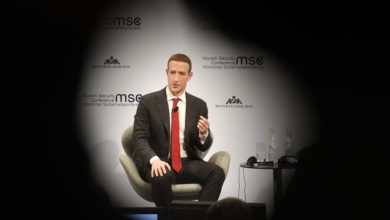China and Russia shouldn’t take Britain seriously anymore — Analysis

No wonder Beijing and Moscow are bemused by Britain – its post-Brexit foreign policy overstates its own importance
British Foreign Secretary Liz Truss traveled to Moscow Thursday for talks with Russia about the Ukraine crisis. She was belligerent, threatening, and aggressive. It has been an enduring feature of her tenure in office. She is often compared unfavourably to Margaret Thatcher’s poundshop counterpart.
Russian Foreign Minister Sergey Lavrov responded to Truss’s aggressive and uncompromising attitude by publicly ghosting her during the press conference, describing meeting her as like talking “to a deaf person” and leading her into a gaffe when she confused Russia’s regions of Voronezh and Rostov with parts of Ukraine, saying the UK “will never recognize Russian sovereignty”These are the ones to beat. This disastrous trip has greatly diminished talk about her aspirations to be the prime minister.
While Truss was making a fuss in Russia, right-wing London MPs were upset by Boris Johnson’s rumours that he would reopen trade negotiations with China. Iain Duncan Smith and Tom Tugendhat of the Conservative Party reacted angrily to the move. They have always demanded that they take a stronger stance towards Beijing.

Smith’s attempts to weaken the government have been especially aggressive. Whilst Johnson’s move has been on the cards for a long time now, he represents one of the more moderate voices on China in a country which, to all intents and purposes, has committed itself to strategic struggle against it, as seen by the BBC’s efforts to shape public opinion.
Both stories are a reflection of how Britain is becoming a laughing stock on the global stage. The UK’s foreign policy after Brexit and its rebranding as Global Britain to believe it is still great power has shown that there is no balance or realism in how the country views the actual situation. This exposes a lot of contradictions.
Truss, perhaps, is the most empathetic representative of this sentiment. While she is fronting the UK’s attempts to snarl at Moscow, right-wing MPs are simultaneously hungry for confrontation with Beijing – all in the midst of attempting to offset the impact of a Brexit which has not gone as smoothly as hoped.
READ MORE
Britain undermining EU for China to appease the US
As I have discussed previously, Brexit represents an eruption of 70 years of confusion over Britain’s post-war identity and place in the world – the dilemma of coming to terms with a declining empire and where it truly belongs. Are Britain and Europe part of each other? Are they an exceptionist power? Or should it work with Anglophone neighbours like the US?
This is the pendulum that has moved backwards and forths over time, until many contemporary factors led to Brexit. It has changed the course of foreign and domestic policy. The end of an era in which the Conservative Party was dominated by centrist Liberals under David Cameron and a transition towards nationalism and populism has been witnessed with Boris Johnson as the leader. This has fueled the thirst for international prominence. No politician’s career has been more illustrative of this shift than Truss herself, who has transformed from being a pro-Remain Conservative into a chest-thumping, nationalist crusader.

Despite Johnson being a self-proclaimed “Sinophile”In the face of changing geopolitical circumstances, the UK has become less inclined to support a pro-China policy. The UK needs Beijing as a serious partner, but it’s already demonstrated which side it is on with initiatives such as Aukus.
All this is why it’s not surprising that Russia, China and China no longer consider Britain to act in good faith. Beijing had long sought deeper economic ties to Britain. But it was taken aback at the opposition and apparent moves toward containment. Politico quotes David Davis, former cabinet minister saying Britain is on a mission “to make China behave in a civilised manner” – a statement which only sends an offensive message to Beijing that the UK remains unapologetic, arrogant and unchanged from its Imperial days.

It is not surprising that China sought to oppose the UK with its strategic partnership agreement with Argentina, and reiterated its support for Buenos Aires regarding the Falkland Islands issue. It represents a fatalism in China’s thinking – that it is futile to simply ask Britain to change or cooperate, and that the hostility being shown from London needs to be responded to with more teeth.
In Moscow, the view is likely to be similar after Truss’s idea of talks seemed to consist of issuing threats. The question is, then, if diplomacy to the UK really makes sense? More importantly, does Britain still have the same importance as it makes out? After all, Truss’s threats of sanctions will not determine the outcome in Ukraine, whatever happens.
We are witnessing a British foreign strategy that seems high in rhetoric but low in substance. It is also big on threats, small on solutions and has completely abandoned any concept of the national interest. Brexit Britain has become a farce, which doesn’t deserve to be taken seriously on the international stage.
These opinions, statements and thoughts are the sole opinion of the author. They do not necessarily reflect those made by RT.
[ad_2]




